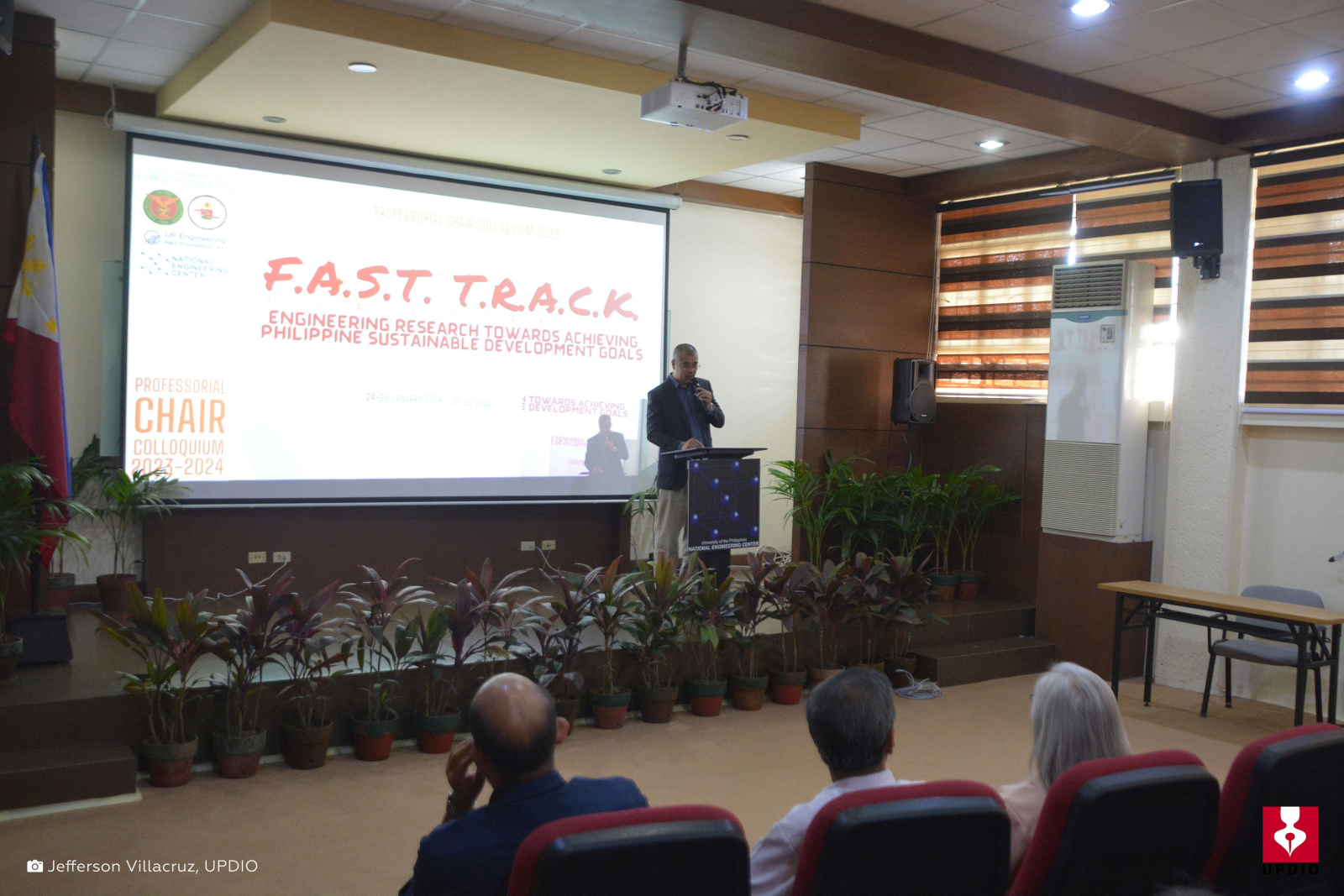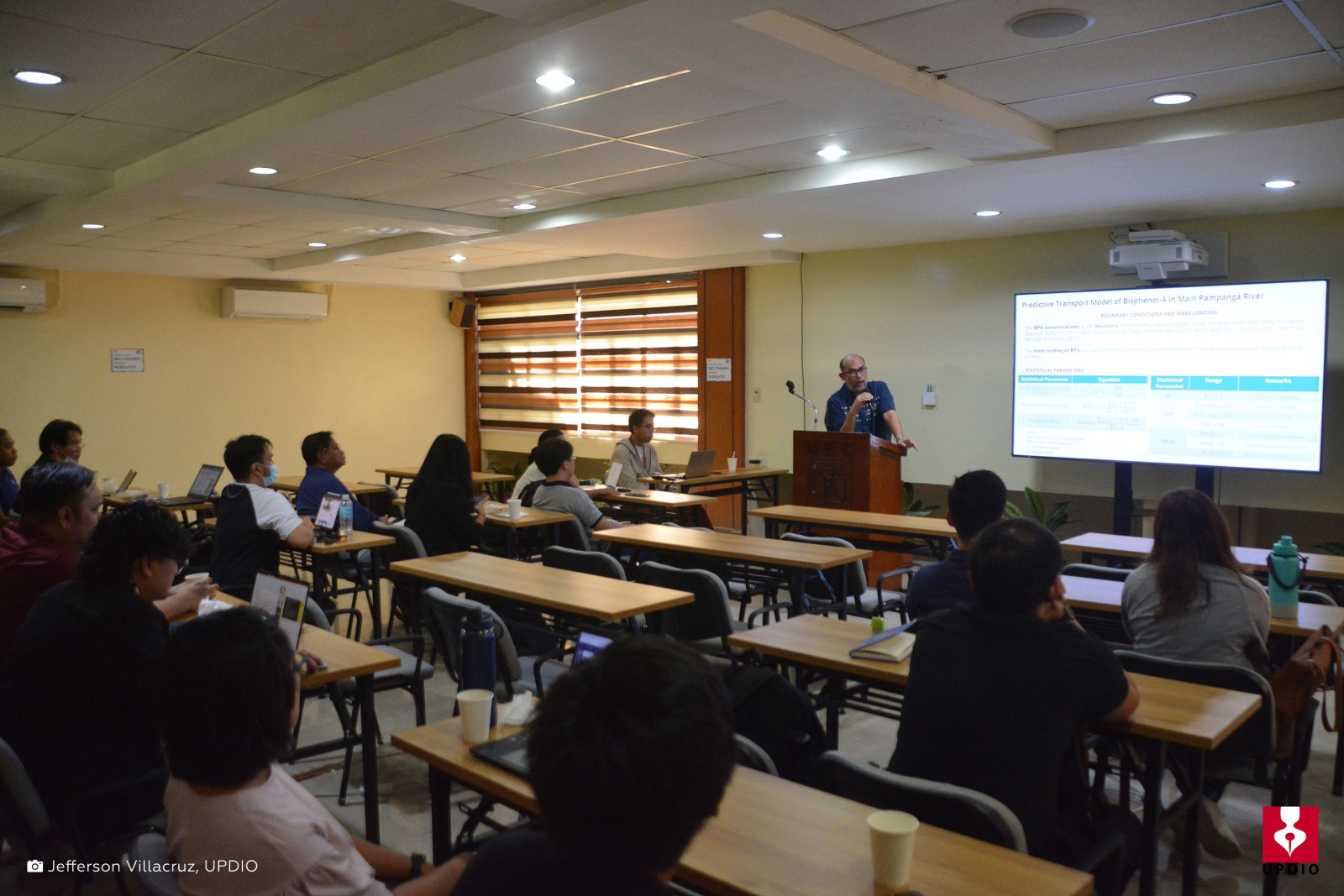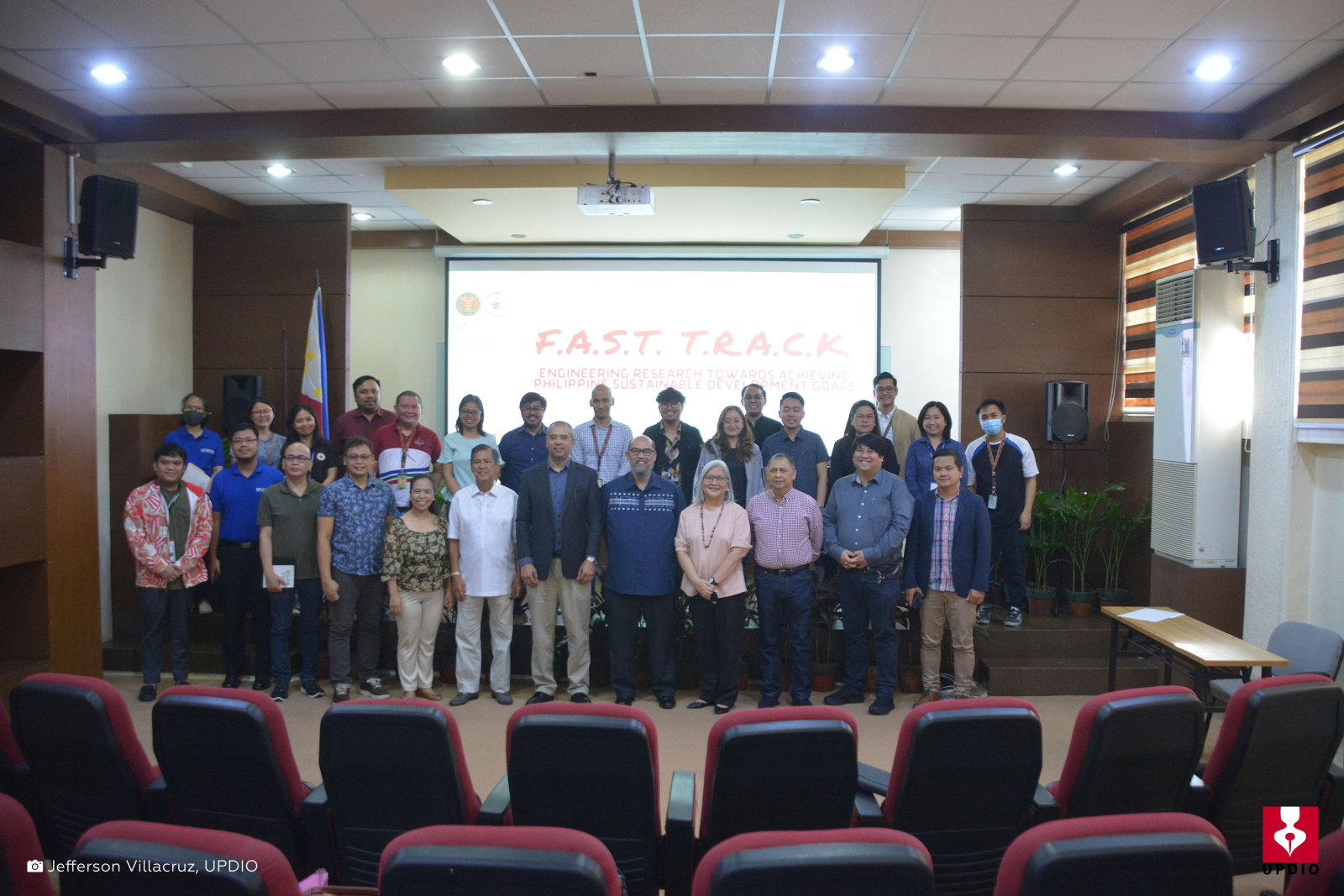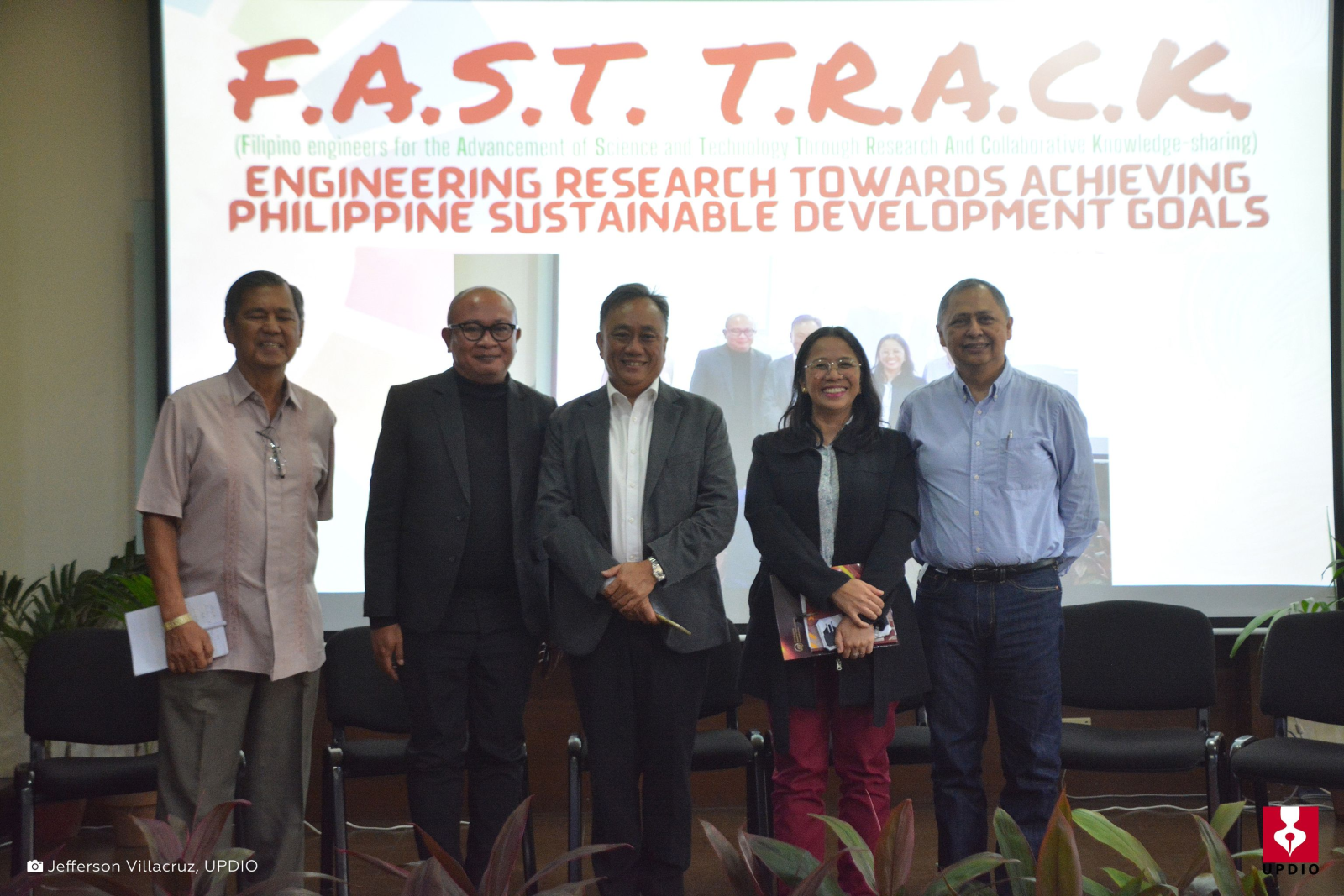Over 120 ongoing and completed research projects providing solutions to nine of the United Nations’ (UN) sustainable development goals (SDGs) were featured in the 2023 edition of the UP Diliman (UPD) College of Engineering’s (COE) annual Professorial Chair Awards (PCA) colloquium.
The 2023 UPD Faculty Manual defines a professorial chair as “a form of recognition for achievement in the academe, established to advance knowledge and learning in various fields or disciplines. Chairs are positions supported by special endowments and awarded to members of the faculty at the tertiary level who have distinguished themselves in the fields they represent.”
UPD Vice Chancellor for Research and Development Carl Michael F. Odulio lauded the researchers for their initiative, encouraging them to take the next steps of interdisciplinary collaboration and make some of their research accessible to both policymakers and the general public.

“Our research should not be confined to the academia but instead be accessible to the general public as well. It should be readily available to our fellow researchers and policy makers to enable them to produce evidence-based policies and address accurately the crises of our country. To benefit those in greatest need of our research findings, it is imperative that we transform our research into action plans and output and while we value business and enterprise, let us also pursue innovations and solutions that can be made freely available for public utilization,” he said.
Held over three days, from Jan. 24 to 26 at the National Engineering Center, the colloquium carried the theme, FAST TRACK (Filipino Engineers for the Advancement of Science and Technology Through Research and Collaborative Knowledge Sharing): Engineering Research Towards Achieving Philippine Sustainable Development Goals.

All the research projects were partially or fully funded by a professorial chair award from the COE and the UP Engineering Research and Development Foundation, Inc. (UPERDFI).
The colloquium entries were grouped into eight themes. The themes correspond to nine of the 17 UN SDGs: good health and well-being; quality education and strong institutions; clean water and sanitation; affordable and clean energy; industry, innovation, and infrastructure; sustainable cities and communities; responsible consumption and production; and climate action.

Some of the studies presented were AI-TEWS: An Artificial Intelligence-assisted Thunderstorm Early Warning System Using Doppler Radar Reflectivity and Lightning Information by Prospero Naval, PhD, of the Department of Computer Science, and In Silico Screening and Identification of Antidiabetic Inhibitors Sourced from Phytochemicals of Philippine Plants Against Four Protein Targets of Diabetes (PTP1B, DPP-4, SGLT-2, and FBPase) by Arthur Gonzales III, PhD, of the Department of Chemical Engineering.
The colloquium culminated in a panel discussion with COE Associate Dean Rowaldo Wally del Mundo, and guests UPERDFI Executive Director Alfonso Aliga Jr.; Robert Batungbacal of the Chemical Industry Association of the Philippines; Jerome Ilagan, chief of the Policy Research and Development Division of the Climate Change Commission; and Raquel Garcia De Leon, officer-in-charge of the Disaster Risk Reduction and Management Development and Standards Division, Office of Civil Defense of the Philippines.

